One of the most recognisable sports figures of the 20th century is being honoured with an exhibition showcasing his life and legacy at the Bellagio Las Vegas Gallery of Fine Art. Muhammad Ali’s success in the ring and his humanitarian work are being honoured in an immersive exhibition experience exploring his six core principles of Confidence, Conviction, Dedication, Giving, Respect and Spirituality.
We were delighted to be involved in the production of this exhibition designed by cubit3D.
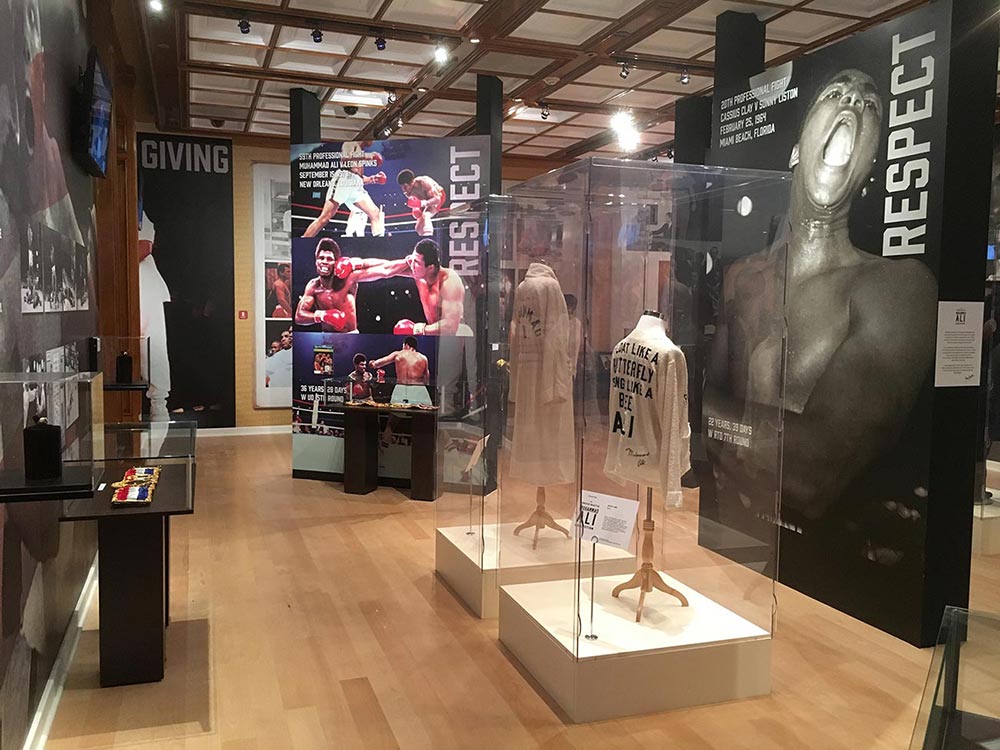
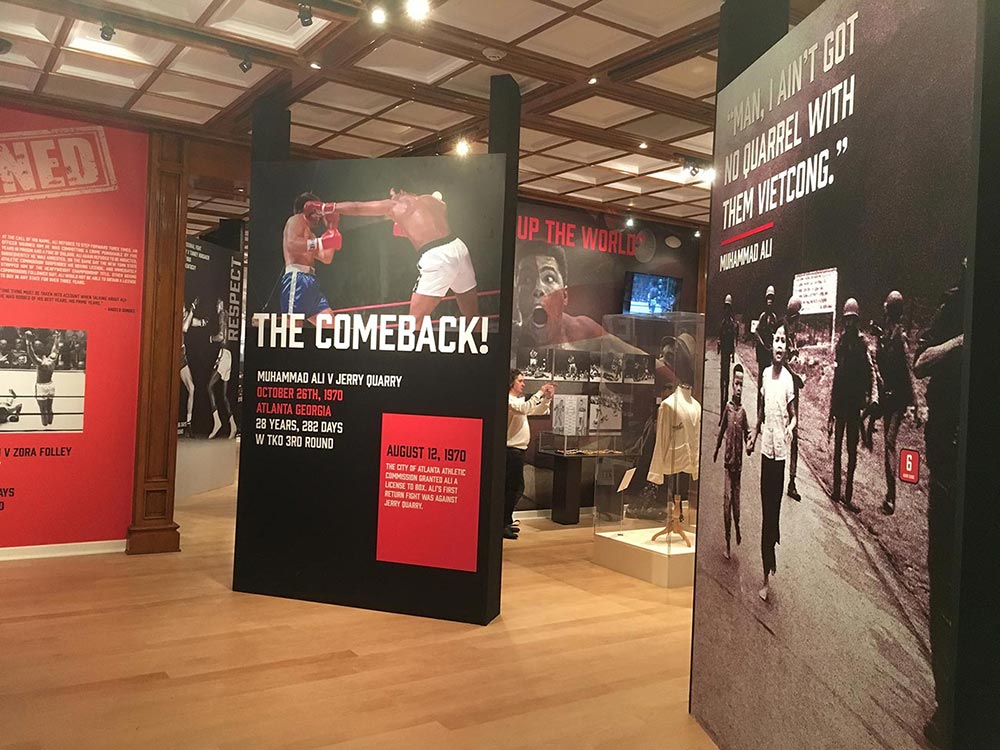
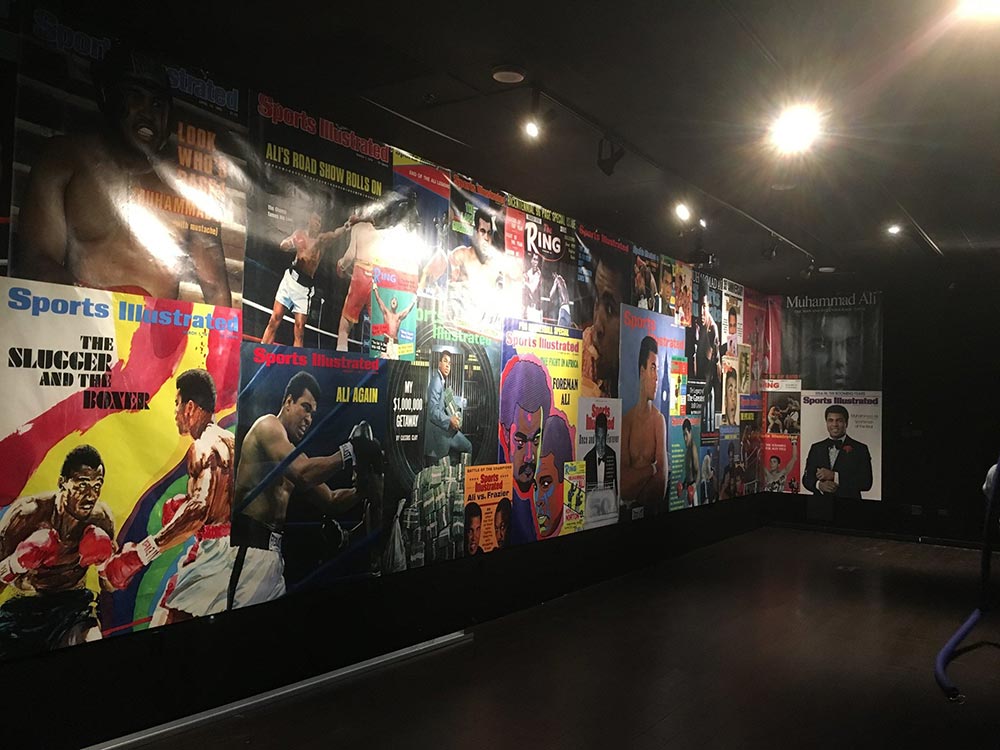
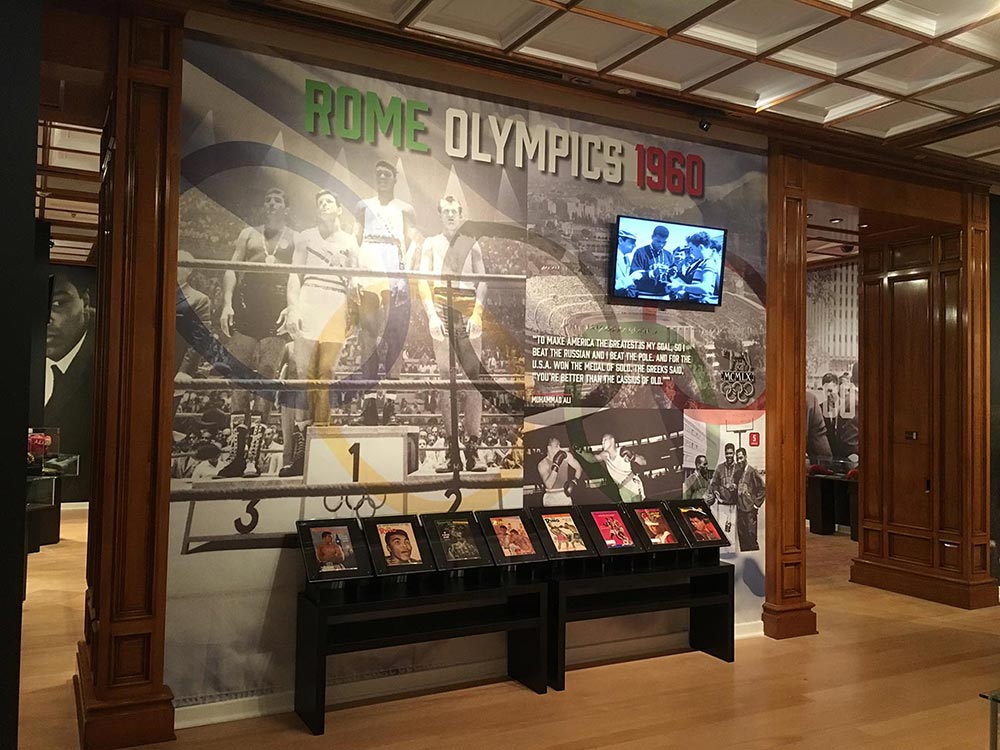
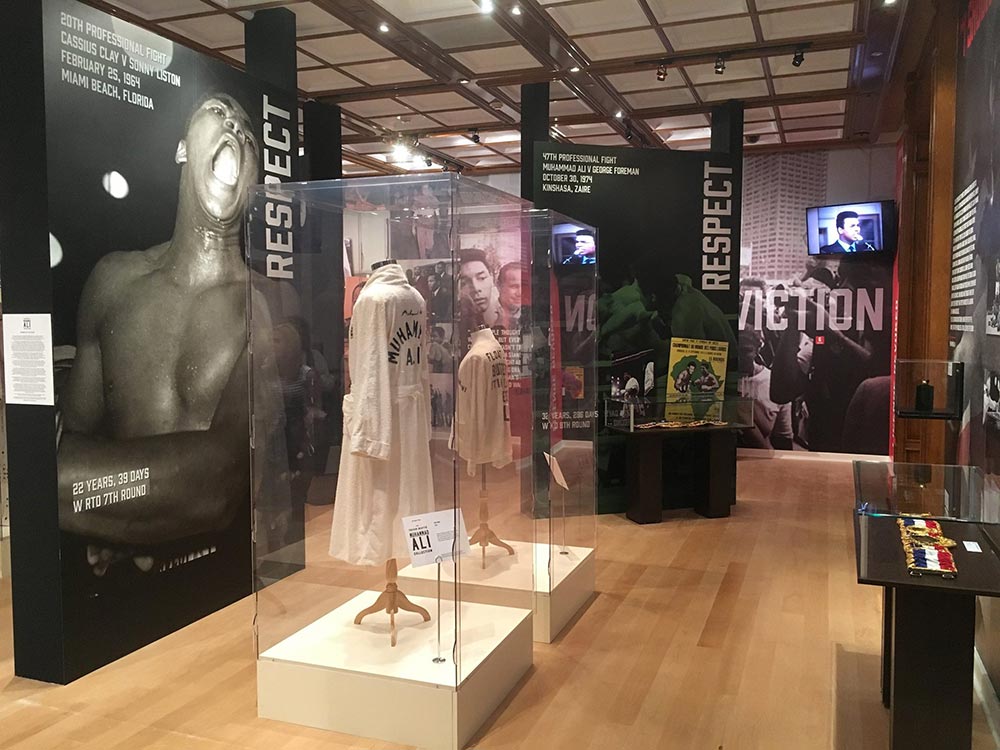
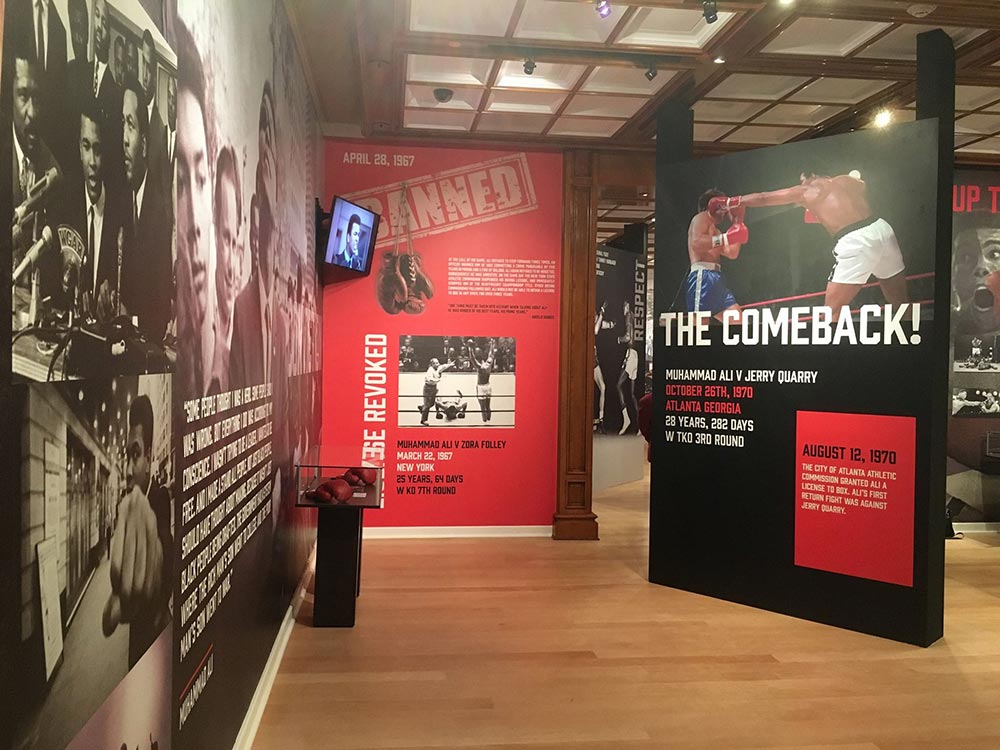
Muhammad Ali – Life of a Legend
Muhammad Ali, born Cassius Marcellus Clay Jr. on January 17, 1942, in Louisville, Kentucky, is a name that resonates far beyond the world of professional boxing. He became not only one of the greatest boxers in history but also a symbol of the civil rights movement and a global ambassador for peace and humanitarian causes.
Ali’s journey in boxing began at the age of 12 when his red and white Schwinn bicycle was stolen, and he vowed to a police officer, who was also a boxing coach, that he would “whup” the thief. That officer, Joe Martin, encouraged him to learn how to box. Within a few years, Ali won six Kentucky Golden Gloves titles, two national Golden Gloves titles, and an Amateur Athletic Union national title. His amateur career culminated in a gold medal in the light heavyweight division at the 1960 Rome Olympics.
Turning professional shortly after the Olympics, Clay quickly made a name for himself with his unorthodox fighting style, characterized by his mantra “float like a butterfly, sting like a bee.” His agile footwork and ability to dodge punches with his head movement were revolutionary for a heavyweight.
In 1964, he stunned the world by defeating the heavily favoured Sonny Liston for the world heavyweight championship. Shortly after this victory, he announced his conversion to Islam and changed his name to Muhammad Ali, a move that reflected his growing involvement in the civil rights movement and his affiliation with the Nation of Islam.
Ali’s career was not without controversy. In 1967, during the Vietnam War, he refused induction into the U.S. military on the grounds of his religious beliefs and opposition to the war, famously stating, “I ain’t got no quarrel with them Viet Cong.” Convicted of draft evasion, he was stripped of his boxing titles and faced a five-year prison sentence, though he remained free while appealing the decision. His boxing license was suspended, and he did not fight for nearly four years at the peak of his career. In 1971, the U.S. Supreme Court overturned his conviction in a unanimous decision.
Ali’s comeback to the ring was marked by some of the most legendary bouts in boxing history. His trilogy with Joe Frazier, which included the famous “Thrilla in Manila,” and the “Rumble in the Jungle” with George Foreman in 1974, where he regained the heavyweight title with his famous “rope-a-dope” strategy, are etched in sports lore.
His skills began to decline in the late 1970s, and after losing his title to Leon Spinks and then regaining it the same year, Ali retired in 1979. He made a brief comeback in 1980 but was defeated by Larry Holmes and Trevor Berbick in his last two fights, retiring for good in 1981.
Ali’s influence, however, transcended boxing. He became an icon of the civil rights struggle and a voice for religious freedom and racial justice. His charisma, outspokenness, and poetry in and out of the ring made him an enduring cultural figure.
In his later years, Ali battled Parkinson’s disease, likely linked to the head trauma suffered during his boxing career. He used his fame to raise awareness and funds for research into the disease and continued his humanitarian work.
Muhammad Ali passed away on June 3, 2016, but his legacy lives on. He is remembered not only as a three-time heavyweight world champion but also as a civil rights icon, a humanitarian, and a man who stood by his principles against all odds. His life and career continue to inspire and resonate with people worldwide, embodying the true spirit of a champion, both in and out of the ring.
